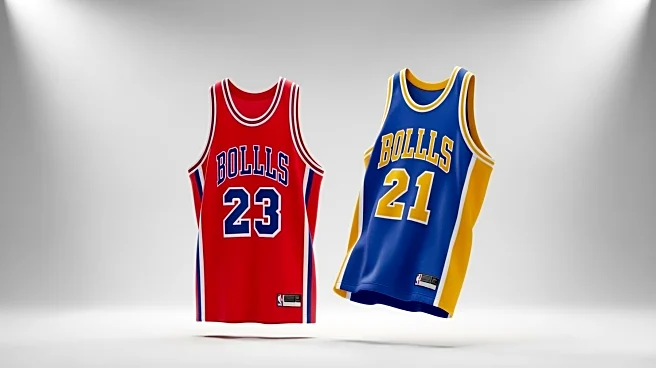What's Happening?
The Boston Celtics have officially converted Ron Harper Jr.'s Exhibit 10 contract into a two-way deal, as confirmed by NBA.com's transaction log. This move follows the team's decision to waive RJ Luis
earlier in the week. Harper, a 6'6" forward, spent the previous season in the NBA G League, where he averaged 16.2 points, 3.9 rebounds, and 2.2 assists per game across 37 appearances with the Motor City Cruise and Maine Celtics. His performance included a notable 38.6% shooting accuracy from three-point range. Harper has participated in three preseason games with the Celtics, averaging 4.3 points per game. This conversion allows Harper to remain with the Celtics for the upcoming season, marking his final year of two-way eligibility before he becomes a free agent in 2026.
Why It's Important?
The conversion of Ron Harper Jr.'s contract to a two-way deal is significant for the Celtics as it provides them with increased roster flexibility. Two-way contracts allow teams to have players split their time between the NBA and the G League, which can be crucial for managing player development and team depth. Harper's ability to shoot from long range and his experience in the G League make him a valuable asset for the Celtics, especially as they look to strengthen their bench. This move also highlights the team's strategy in utilizing two-way contracts to maximize their roster potential without committing to full NBA contracts, which can be financially advantageous.
What's Next?
With Harper's contract now converted, the Celtics will likely focus on integrating him into their system during the regular season. His performance in the G League suggests he could contribute significantly to the team's efforts, particularly in games where depth is needed. The Celtics will monitor his development closely, as his performance this season will determine his future with the team and his potential free agency in 2026. Additionally, the team will continue to evaluate their roster and make adjustments as needed to optimize their lineup for the season.
Beyond the Headlines
The use of two-way contracts is becoming increasingly popular in the NBA as teams look for ways to develop talent while managing salary cap constraints. This approach allows teams to invest in players who may not be ready for full-time NBA roles but have the potential to grow into valuable contributors. Harper's situation exemplifies this trend, as his G League experience and shooting ability make him a promising candidate for future NBA success. The Celtics' decision to convert his contract reflects a broader strategy of leveraging two-way deals to enhance team performance and player development.











